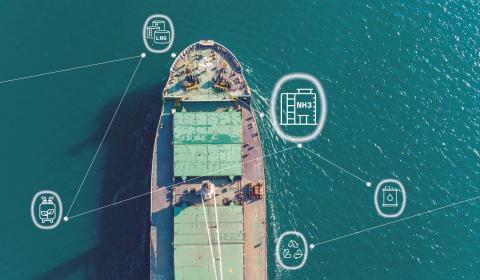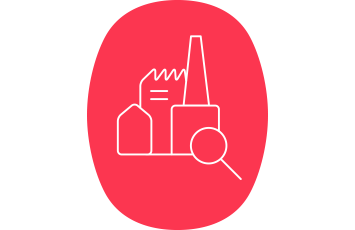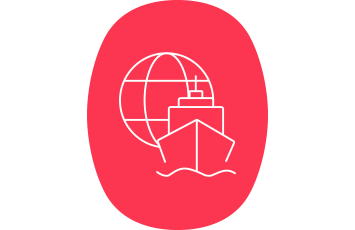
What will 2021 look like for shipping worldwide?
Following on the heels of 2020 – a year of unprecedented change for the marine industry – 2021 promises more unique challenges and opportunities around the world. To start the New Year, we talked to our regional heads about their predictions for 2021, from decarbonization to digitalization, and how Bureau Veritas’ expertise can help clients achieve their goals.
David Barrow, South Asia & Pacific
We are hoping to see the recovery of new construction, though this will depend on how quickly the economy recovers from the pandemic. That said, a bright spot in the region is the growth of the naval sector, with expanding navies in Australia, New Zealand, Malaysia and Indonesia.
Otherwise, the big topics are sustainability and digitalization. Alternative fuels and battery power are increasingly on the agenda for ship owners. LNG-fueled vessels will remain in demand, with an increase in LNG bunkering vessels opening up the LNG supply chain. Digitalization is also moving at a rapid pace, with BV’s Remote Survey Centers at the center of our support for clients’ growing technological needs in 2021.
Bruno Dabouis, Southern Europe, North Africa and North America
The collapse of oil prices in 2020 – combined with the Covid-19 pandemic – showed marine stakeholders how unpredictable the context for making short- and long-term decisions can be. Nonetheless, major trends are emerging, which will be reinforced in the coming years.
Between now and 2030, sustainable energy, low-carbon and zero-carbon fuel projects will begin taking the lead, supported by initiatives like carbon capture and reinjection technology. This will enable stakeholders to limit GHG emissions and meet global climate targets.
Regarding specific segments, 2021 will hopefully see the resumption of passenger ship activities. Gas carriers and containerships will continue developing, along with the global renewal of naval fleets. Finally, calls for sustainability and cyber security services are expected to grow.
Kerem Kiper, India, Middle East and Africa
Oil majors and offshore service vessel (OSV) companies across the Middle East are looking to change their business models, leaning into digitalization and innovation. We are starting to see new interest in larger and more modern offshore projects for production and exploration, with connected assets. Digitalization is also increasingly tied to cyber security, which is a key area for our clients across regions heading into 2021.
Meanwhile, sustainability continues to make a splash across regions. LNG bunkering activities are increasing around the Middle East, and wind farm OSV construction is going strong in Türkiye.
Alexander Gregg-Smith, North Asia
The energy transition is at the forefront of stakeholders’ minds in China, South Korea, and Japan. China’s pledge to achieve carbon neutrality by 2060 is putting further pressure on the shipping industry to lean into clean fuels and alternative propulsion.
In South Korea, LNG-fueled and gas carrier projects have been pushed into 2021, and attractive LNG prices may lead to speculative orders for tankers and containerships. In Japan, we expect to see the continuation of two key trends: an increase in dual-fuel vessels and a shift in new construction from Japanese to Chinese shipyards.
Paillette Palaiologou, Hellenic, Black Sea and Adriatic Zone
With decarbonization at the forefront, 2021 will be the year when ship owners and operators face the practical challenges of complying with IMO’s newest measures. Ship owners will need to evaluate fleet performance and identify sustainable solutions for existing ships, while deciding how to build vessels that use alternative fuels. Though numerous fuels appear promising, LNG continues to be the only immediately available solution in the HBSA region.
Meanwhile, industry players will face the ongoing challenge of managing the next stages and eventual end of the COVID-19 pandemic. Some restrictions from this unprecedented global situation remain, such as travel bans, and may cause further delays and project postponements. Because of this, remote survey activities are likely to continue through 2021 and beyond.
Herman Spilker, North Europe
Europe’s tightening environmental regulations – including the inclusion of shipping in the EU Emissions Trading System as of 2023[1] – means 2021 is all about the road to 2030 and 2050. Ship owners need to figure out how to build a vessel that can sail for the next 25 years, regardless of what legislation comes into effect.
LNG is increasingly seen as more of a transition fuel, supporting the way to decarbonization and paving the way for the projects that will dominate the shipping industry. From 2021 on, these will include increased use of biofuels, ammonia and hydrogen fuel, and carbon capture and storage technology.
[1] As per EU Directive 2018/410
YOU MAY ALSO LIKE










